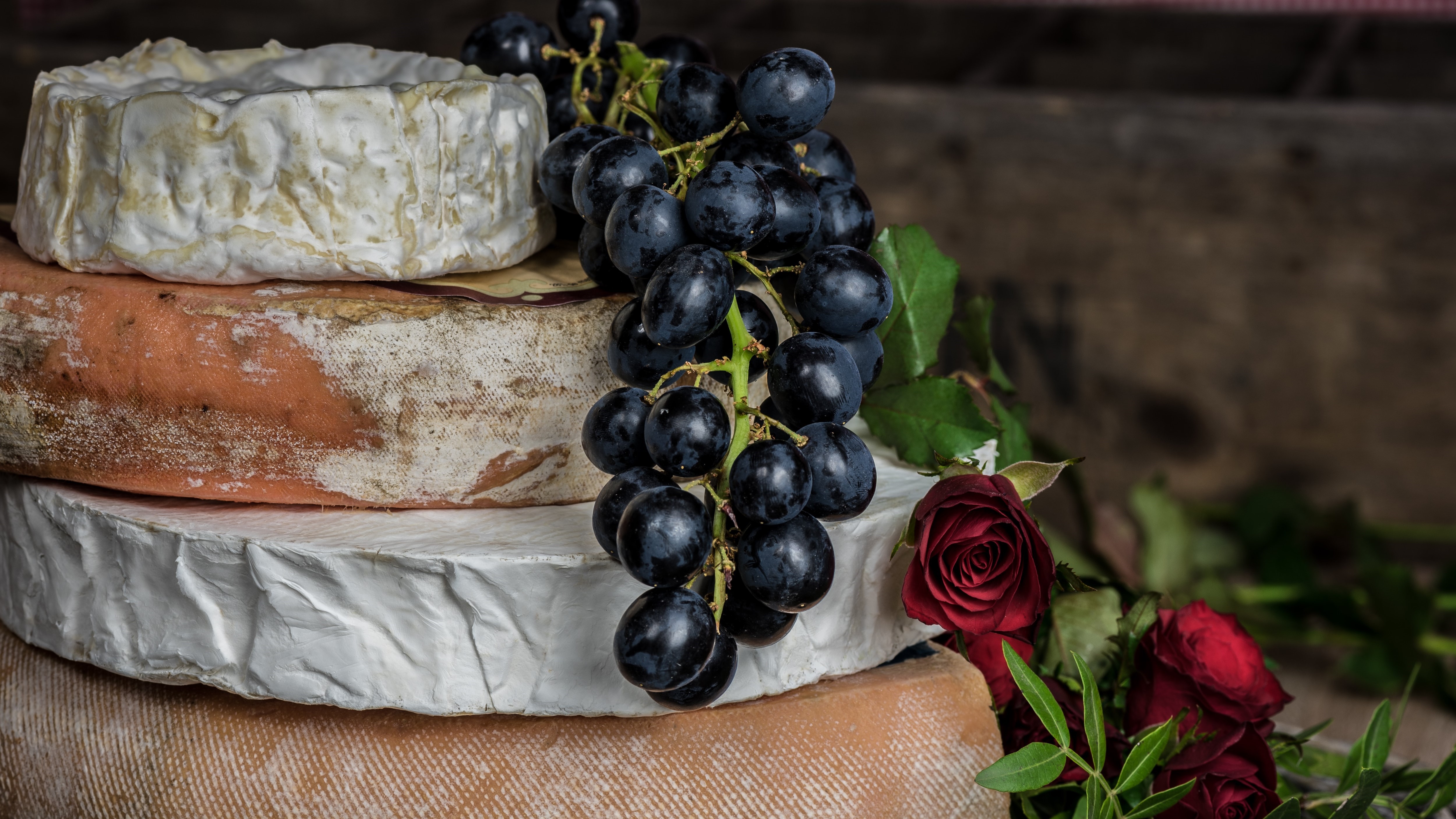October 2022: The Month in Review

With new investments and a range of partnerships, this October marked a strong start to the fourth quarter for the cellular agriculture field. Compared to the third quarter of 2022, this October featured a range of product showcases as companies look to scale production and come to market.
From new funding announcements to new startup partnerships, we look at what happened this October 2022 in cellular agriculture.
Investments
Gourmey
Gourmey announced that the company raised EUR 48 million in Series A funding. Based in Paris, France, Gourmey uses cellular agriculture to produce cell-based poultry, specifically foie gras.
The largest Series A funding round to date for a cell-based meat company, Gourmey’s funding round was led by Earlybird Venture Capital and featured both new and returning investors. Existing investors in the funding round include seed round co-leads Point Nine Capital and Air Street Capital.
 Gourmey's cell-cultured foie gras
Gourmey's cell-cultured foie gras
According to the announcement, the funding round brings Gourmey’s total funding to EUR 56 million. In July 2021, the company shared it raised $10 million in seed funding, which remains the largest seed funding round for a startup focused on cell-based poultry products.
Gourmey plans to use the funding round to expand its team and scale up its production capacity at a new 46,000 square ft. facility in Paris. The startup claims the new facility will be Europe's largest cell-cultured meat hub.
Moving forward, Gourmey shared that constructing the new facility will take 18 months and two years. Once complete, the company shared the facility will have an annual production capacity of up to tens of thousands of pounds of its cell-based foie gras.
Interestingly, Gourmey’s funding round more than doubles all disclosed cellular agriculture food investments in France. In September, new cellular agriculture dairy startups Nutropy and Standing Ovation raised funding rounds to produce cell-cultured dairy proteins.
Nourish Ingredients
Cell-cultured fat startup Nourish Ingredients raised $28.6 million in Series A funding to develop fats and oils directly from cell cultures. Using its proprietary yeast fermentation platform, Nourish Ingredients can produce fats and oils found in animal products to enhance the taste and flavor of plant- and cell-based meat products.
 Nourish Ingredients' team
Nourish Ingredients' team
Moving forward, Nourish Ingredients plans to use the funding round to scale its production platform and additional product development, including through partnerships with universities. The startup expects its first cultured fat products to go into alternative protein products and specialty foods in 2023.
Nourish Ingredients’ funding round was led by Horizon Ventures, who previously invested in the startup's $11 million funding round in March 2021.
Hoxton Farms
Cell-based fat company Hoxton Farms announced $22 million in Series A funding to scale its production platform. A key component of meat, animal fat plays a critical role in the taste, texture, and flavor of meat products.
 Hoxton Farms co-founders Max Jamily and Ed Steele
Hoxton Farms co-founders Max Jamily and Ed Steele
Hoxton Farms aims to leverage machine learning and mathematical modeling to develop proprietary bioreactors and a low-cost animal-free cell culture media formulation. The British startup plans to use the funding round to open a 13,000 sq ft. pilot facility in London.
Interestingly, instead of building larger bioreactors to ‘scale up’ production, Hoxton Farms is focusing on ‘scaling out’ production by using many smaller bioreactors connected through software automation. The funding round was co-led by Collaborative Fund and Fine Structure Ventures, Fidelity’s deep tech fund.
Synonym Biotechnologies
New startup Synonym Biotechnologies raised $6.3 million in pre-seed funding to develop bio-manufacturing facilities for non-pharmaceutical applications, including for acellular agriculture (also known as precision fermentation). The new startup aims to develop, finance, and build commercial-scale bio-manufacturing facilities and, as a result, provide synthetic biology producers, such as acellular agriculture startups, with production capacity. Synonym intends to break ground on its first scaling facility in the third quarter of 2023.
Forsea Foods
New startup Forsea Foods announced raising $5.2 million in seed funding to produce cell-cultured seafood. According to the announcement, Forsea Foods uses a non-GMO organoid technology to make cell-cultured meat as a three-dimensional tissue structure.
 Forsea Foods' team
Forsea Foods' team
The startup claims the technology bypasses the scaffolding stage and requires fewer bioreactors to produce at scale. Moving forward, the company plans to use the funding round to focus on making cell-cultured eel meat.
The funding round was led by Target Global and included investments from the Kitchen FoodTech Hub and PeakBridge VC.
BioRaptor
New startup BioRaptor raised $3 million in seed funding to support scientists in the biotech and food tech industries. Founded by Orin Zakin and Yaron David, BioRaptor intends to build an operating system for biology research and manufacturing by leveraging artificial intelligence to present precise data insights.
Considering that investors in the funding include active food tech investors CPT Capital and FoodHack, BioRaptor can likely support alternative protein startups to use their data insights to design better experiments and commercialize in cost-effective manners.
Meatiply Showcases Cultured Duck in Singapore
Smoked duck meat, anyone? New Singaporean startup Meatiply showcased three cell-based meat prototypes as a proof of concept of its technology platform.
 Meatiply's cell-cultured smoked duck meat
Meatiply's cell-cultured smoked duck meat
From kampong chicken yakitori to chicken katsu bites, the company also showcased the first cell-based smoked duck breast meat in Asia. Meatiply shared that each prototype was a structured product made from multiple cell types, including muscle and fat cells. In addition, each prototype was a combination of cells and plant-based ingredients.
Moving forward, Meatiply shared the company has two more species in its pipeline and aims to raise a seed round to scale its production platform and explore regulatory approval.
Wild Earth Develops Cell-Based Meat Broth for Dogs
Beyond food, cellular agriculture can be used to create a broad range of products, including pet foods. In October, pet food company Wild Earth announced that it developed a cell-based meat broth topper for dogs.
 Wild Earth's pet food
Wild Earth's pet food
Scheduled to be available to consumers in 2023, Wild Earth claims that its cell-based chicken broth will be the first cell-based meat product to be introduced in the pet food industry.
Considering that American pets consume enough meat to be the fifth most meat-consuming nation in the world, cellular agriculture can help develop a sustainable future for pet food. In September 2021, Wild Earth raised $23 million in funding.
Vow Launches Factory 1 in Australia
At the start of October, Australian company Vow announced the opening of its new cell-based meat facility in Sydney.
Calling the facility Factory 1, Vow shared its facility has a production capacity of up to 30 tons of cell-based meat products per year. As the first scaled facility in Australia, Vow claims that Factory 1 is the largest cell-based meat facility in the southern hemisphere.
 Bioreactor at Vow's Factory 1
Bioreactor at Vow's Factory 1
While launching its new facility, Vow shared that the company previously submitted its first product for regulatory approval in Singapore and aims to launch in Singapore before the end of 2022. Vow plans to announce its first product in approximately one month.
At the end of 2020, Singapore became the first country to give regulatory approval to sell cell-cultured meat. When Vow launches in Singapore, the company plans that Factory 1 will handle the production of its first product.
Interestingly, along with Singapore, Vow also aims to receive regulatory approval in Australia. The cell-based meat company believes that it will be able to start selling its first product in Australia within the next 12 to 18 months.
Moving forward, Vow plans to start developing its next facility, Factory 2. The company aims for Factory 2 to be 100 times larger than Factory 1. Vow intends to complete its Factory 2 in the second half of 2024.
Change Foods Partners to Build Facility in the UAE
Cellular agriculture dairy startup Change Foods announced a partnership to design and build a commercial-scale manufacturing plant in Abu Dhabi, United Arab Emirates (UAE).
Based between Australia and the United States, Change Foods is the first startup in the Asia-Pacific region to focus on using acellular agriculture (also known as precision fermentation) to produce cell-cultured dairy proteins such as casein for cheesemaking.

According to the announcement, Change Foods signed a pre-development agreement with the KEZAD Group to set up operations in Abu Dhabi, with support from the UAE Ministry of Economy through its NextGen FDI initiative. The planned facility will be the first of its kind facility in the Gulf region to produce a cell-cultured dairy protein.
The first facility of its kind in the Gulf region, Change Foods shared that the proposed facility will be a custom-built 1.2 million liter fermentation facility with the production capacity to produce as much output as 10,000 cows.
While the company did not share a timeline for completion, Change Foods is in the facility design stages before starting construction in the first half of next year. Change Foods also shared that the startup is in the final stages of closing a bridge funding round.
Esco Aster Partners with Meatable, Mosa Meat, and Roslin Technologies
Singaporean CDMO - contract development and manufacturing organization - Esco Aster announced partnerships with Dutch cell-based meat companies Meatable and Mosa Meat through October.
Early in October, Meatable announced a partnership with Esco Aster to launch its cell-based pork product in Singapore. The company’s first international expansion, Meatable’s partnership with Esco Aster will enable the startup to produce a range of cell-based pork products, such as dumplings and sausages, in Singapore.

In addition, Mosa Meat shared that the Dutch company signed an agreement with Esco Aster to produce its cultured beef in Singapore. While Mosa Meat has yet to share details about its partnership, Meatable previously shared its plans to launch its cell-based pork in Singapore in 2024 through its partnership.
Through the partnership, Meatable intends to launch its cell-based pork in Singapore in select restaurants in 2024 and aims to have products on sale in supermarkets in 2025. In addition, Meatable intends to work closely with Singaporean regulators to receive regulatory approval.
Esco Aster also recently shared that the company signed a partnership with cell line provider Roslin Technologies. According to the announcement, the two companies will collectively work towards establishing the first licensable food regulatory-certified cell line for cell-based meat.
In September 2021, Esco Aster became the first CDMO to obtain a license to manufacture and produce cell-cultured meat in Singapore.
The EVERY Company Partners with Pulp Culture to Launch Product
Cellular agriculture company the EVERY Company announced a partnership with Pulp Culture to produce cell-cultured protein-enhanced alcoholic juice beverages.
Calling the product line BUILD by Pulp Culture+, the companies claim the drink is the world’s first beverage to use fermentation to brew the alcoholic beverage and fermentation to produce the Every Company’s cell-cultured protein.
 BUILD by Pulp Culture, a collaboration with The Every Company
BUILD by Pulp Culture, a collaboration with The Every Company
According to the announcement, Pulp Culture previously struggled to identify a protein source that possessed the solubility, texture, and neutral taste profile suitable for its beverage line before partnering with the Every Company.
Similarly, the Every Company previously partnered with Pressed Juice in November 2021 to include its cell-cultured protein product, Clear Egg, in a juice smoothie.
MicroMeat Partners with Orbital Assembly to bring Cell-based Meat to Space
Mexican cell-based meat company MicroMeat announced a partnership with Orbital Assembly, a developer of space-based business parks, to produce cell-based meat for outer space.
According to the partnership, MicroMeat will install its cell-cultured meat production equipment in Orbital Assembly’s Pioneer class space stations, which are expected to be the world’s first and largest hybrid space station in operation for both work and recreation.
MicroMeat believes developing its cell-cultured meat in zero gravity will help it scale its protein production system on earth. Through its proprietary scaffolding technology, MicroMeat aims to produce a ton of cultured meat in thirty days on earth in 3 years.
In October 2019, Aleph Farms grew the first piece of cell-based meat in outer space.
The Cultivated B and Ontario Genomics To Support Cellular Agriculture in Canada
New technology-enabling startup The Cultivated B (TCB) announced a partnership with Ontario Genomics to support the cellular agriculture field in Canada as TCB plans to expand into the country. With plans to open a 130,000-square-foot manufacturing facility in Burlington, Ontario, Canada, TCB signed a memorandum of understanding with Ontario Genomics to set up a 20,000-square-foot innovation hub within TCB’s facility.

The innovation hub will provide small and medium-sized cellular agriculture and biotech companies with access to lab space, bioreactors, and mentorship to test and scale their production systems. According to Ontario Genomics, enabling access to specialized infrastructure for the field will help grow and shape the cellular agriculture industry in Canada.
Along with the innovation hub, TCB aims to help the future of food field scale by providing both equipment and services to plant-based and cell-based players. The company stated it would develop and produce bioreactors from 500mL to 25,000L, as well as photobioreactors and high-precision devices for cellular agriculture and precision fermentation applications.
The manufacturing facility will also house TCB subsidiary PreFer Industries, which focuses on developing alternative protein sources through precision fermentation (also known as acellular agriculture).
In May 2022, Ontario Genomics and the Canadian Food Innovation Network announced funding of more than $900,000 for startups and projects through the AcCELLerate-ON competition, the first regional cellular agriculture competition in Ontario, Canada.
Motif FoodWorks Announces Additional Partnership with Vectron Biosolutions
Motif FoodWorks announced a partnership with Vectron Biosolutions, a microbial strain development and protein production company. Building upon their existing partnership, the two companies will work together to develop the next generation of cell-cultured proteins via precision fermentation (also known as acellular agriculture).
According to the announcement, Motif will leverage Vectron’s expertise in strain development and proprietary gene expression technologies to improve the taste and texture of dairy alternatives. The partnership will also look to improve the nutrition levels of plant-based foods.
In December 2021, Motif FoodWorks received regulatory approval in the US for its cell-cultured protein product, myoglobin. Branding the product as HEMAMI, Motif’s myoglobin product aims to mimic the flavors of cooked ground meat in fresh and frozen plant-based burgers, patties, and sausages.
BlueNalu Shares Plan to Scale Cell-Cultured Seafood
Cell-cultured seafood company BlueNalu shared how it plans to scale its production platform to its first large-scale facility while being profitable.
 BlueNalu's cell-cultured yellow amberjack
BlueNalu's cell-cultured yellow amberjack
Through two technology breakthroughs - producing its cell-cultured seafood in single-cell suspension and a patent-pending lipid-loading platform - BlueNalu claims the company can reduce both the operating and capital costs for large-scale production.
Focusing on Bluefin tuna toro as its first product, BlueNalu shared that its future large-scale facility will contain eight 100,000-liter bioreactors with the capacity to produce up to six million pounds of cell-cultured seafood products annually.
BlueNalu recently moved into its pilot production facility and plans to break ground on its large-scale facility in 2025 to be operational by 2027.
Cellular Agriculture Industry Associations Launch Global Alliance
The three regional cellular agriculture industry associations came together to announce the launch of a global alliance to advocate for cellular agriculture foods worldwide. At a meeting last week during Singapore International Agri-Food Week, AMPS Innovation, Cellular Agriculture Europe, and APAC-SCA met to strategically discuss the cellular agriculture industry and a shared vision for the global alliance. From regional synergies and regional harmonization to communication practices, the global new coalition hopes to have a united voice at the upcoming COP27 sustainability conference.
Asia-Pacific Stakeholders Agree to Use Term Cultivated Meat
For a novel field like cellular agriculture, the terminology is one of the first ways consumers may engage with the field’s food products. Across Asia-Pacific, more than 30 stakeholders in the cellular agriculture field have agreed to use the term ‘cultivated’ as the English-language descriptor to describe their cell-cultured food product.
From startups and regional coalition groups to multinational corporations, all the players in the MOU agreed to use the term ‘cultivated’ to facilitate regulatory standardization and public trust. The Good Food Institute APAC and the APAC Society for Cellular Agriculture facilitated the agreement.
Perception Study about Cell-cultured Dairy Highlights Consumer Concerns
In a new study, cellular agriculture dairy startup Formo, animal welfare nonprofit Mercy for Animals, and Dr. Garrett Broad from Rowan University explored consumer perception of dairy produced via cellular agriculture.
Using the term ‘animal-free dairy,’ the study focused on ten focus groups in the US, UK, Germany, and Singapore. While participants were open to cellular agriculture dairy products, the study found that many participants had “a number of questions” about its production process, safety and regulation, and product quality and taste.
Ultimately, the researchers concluded that the adoption of cell-cultured dairy would depend on its ability to “clearly demonstrate that it is preferable to conventional dairy or its plant-based competitors” for consumers.
Steakholder Foods Receives First US Patent
Formerly known as MeaTech 3D, Steakholder Foods shared that the company was granted its first US patent for its system to develop complex structured meat from cells. According to Steakholder Foods, one of the challenges with producing a structured cell-cultured meat product is to match the texture and mouthfeel of conventional meat. The startup aims to address the challenge with its patented system to ‘exercise’ the muscle tissue. The company shared it received similar patents earlier this year in Australia and New Zealand.
Umami Meats Files for Patent in Singapore
Singaporean cell-cultured seafood startup Umami Meats filed a patent for its technology platform to produce its seafood products. According to the announcement, Umami Meats developed a single-stem cell technology platform that uses mesenchymal stem cell lines from fish.
 Umami Meats' cell-cultured fish ball laksa
Umami Meats' cell-cultured fish ball laksa
Compared to production systems that require multiple cell types, Umami Meats claims its platform is unique because it requires one cell type and one production line to cultivate muscle and fat cells for its cell-cultured seafood.
So far, Umami Meats has developed cell lines from three species using its platform, including the Japanese eel. The company showcased Singapore's first cell-cultured fish ball laksa dish at the end of August.
Mewery Develops Serum-Free Growth Media
Czech cell-based meat startup Mewery announced a new milestone: developing a serum-free growth media that reduces the cost of producing cell-cultured meat. By using a proprietary microalgae platform to replace the animal components of the cell culture media, Mewery claims to have reduced the cost of producing cell-based meat by 70%.
 Visualization of Mewery's cell-based pork meatballs
Visualization of Mewery's cell-based pork meatballs
Mewery also shared that the startup raised its pre-seed funding round of just below $1 million in pre-seed funding from Credo Ventures and Purple Ventures. The startup will use the funding round to retrofit its news lab and expand its team of scientists. By the end of the year, Mewery aims to have the prototypes of its first product, cell-based pork meat.
Seminal Biosciences to develop Cacao Butter from Cell Cultures
New startup Seminal Biosciences came out of stealth mode to develop cacao butter, the fatty part of the cacao bean, directly from cells. Based in San Diego, Seminal Biosciences uses precision fermentation (also known as acellular agriculture) to develop cacao butter to address the problems associated with cacao farming, such as deforestation.
The startup claims it performs like conventional cacao butter to make creamy chocolate bars. Working in partnership with Nucelis to leverage its microbe gene-editing technology, Seminal Biosciences aims to scale production and prepare for a 2024 market launch.
Boston BioWorks Launches to Scale Fermentation Capacity
New startup Boston BioWorks launched to provide fermentation process development and scale-up services to alternative protein companies focusing on precision fermentation products (also known as acellular agriculture) or biomass fermentation.
Founded by Michael Tai, Mert Sahin, and Ted Netland, Boston BioWorks aims to offer a new platform for fermentation-based companies to scale products from benchtop to commercial scale more quickly without the high costs of developing their own large-scale facilities. Since launching, Boston BioWorks stated the company has signed on four clients from several alternative protein categories.
According to the announcement, co-founder and CEO Michael Tai previously served as Head of Bioprocess at Motif FoodWorks, where he developed the industrial process for Motif FoodWorks’ cell-cultured heme ingredient.
Bolt Threads and Ginkgo BioWorks Expand Partnership
After initially announcing a partnership in August 2021, biomaterials company Bolt Threads announced an expanded partnership with synthetic biology company Ginkgo Bioworks. According to the announcement, the two companies will work together in a multi-project collaboration to increase the efficiency and performance of Bolt’s portfolio and develop novel biomaterial proteins.
As the first project, Ginkgo will support Bolt Threads to optimize the production of its mycelium-based leather alternative, Mylo. Ginkgo will aim to increase Bolt Threads’ mycelium's growth rate to help lower Mylo’s overall production costs. Bolt Threads and Ginkgo Bioworks previously partnered to leverage Ginkgo’s expertise in strain engineering to improve the cost-effectiveness of producing Bolt Threads’ cell-cultured spider silk proteins.
Conclusion

With more funding disclosed in October than in all of the third quarter, October marked a solid start to the end of the year for the cellular agriculture field. With a range of announcements, from partnerships to one of the largest funding rounds for a cellular agriculture startup in Europe, the field looks likely to finish the year strong.
In particular, this October saw many partnerships to scale production that can help the field come to market.
As cell-based meat companies look to scale and expand globally, companies like Esco Aster highlight how CDMOs and corporates can enter the cellular agriculture supply chain by offering manufacturing services globally. For example, instead of building facilities to launch in Singapore, both Mosa Meat and Meatable can leverage Esco Aster’s facility to launch there.
In addition, Change Food’s announcement highlights the role of government incentives and investments for cellular agriculture companies in deciding where to set up its facilities, particularly in the UAE, as the nation aims to position itself as a leading food tech hub in the Gulf region of the Middle East.
As the UAE aims to position itself as a leading food tech hub in the Middle East, Change Foods’ announcement highlights the role of government incentives and investments for cellular agriculture companies in deciding where to set up its facilities.
For example, in July 2021, the venture arm of Abu Dhabi’s sovereign fund ADQ, Disrupt AD, co-led Aleph Farms’ Series B funding round. Aleph Farms shared that the company will evaluate establishing a manufacturing facility in Abu Dhabi to supply its cell-based meat to the UAE and the wider Gulf region.
In April 2022, the state-owned Abu Dhabi Growth Fund also co-led Upside Foods’ $400 million Series C funding round, the largest funding round to date for a cellular agriculture food company.
Within the wider Gulf region, in August 2021, Eat Just partnered with state-backed Doha Venture Capital and Qatar Free Zones Authority to develop a large-scale cell-based meat plant in the country.
Without revealing the exact cost breakdown, Eat Just shared a large proportion of the $200 million facility cost will come from Doha Venture Capital.
Stay connected with CellAgri
Join our mailing list to receive the latest news and updates weekly from the cellular agriculture industry. Your information will not be shared.



